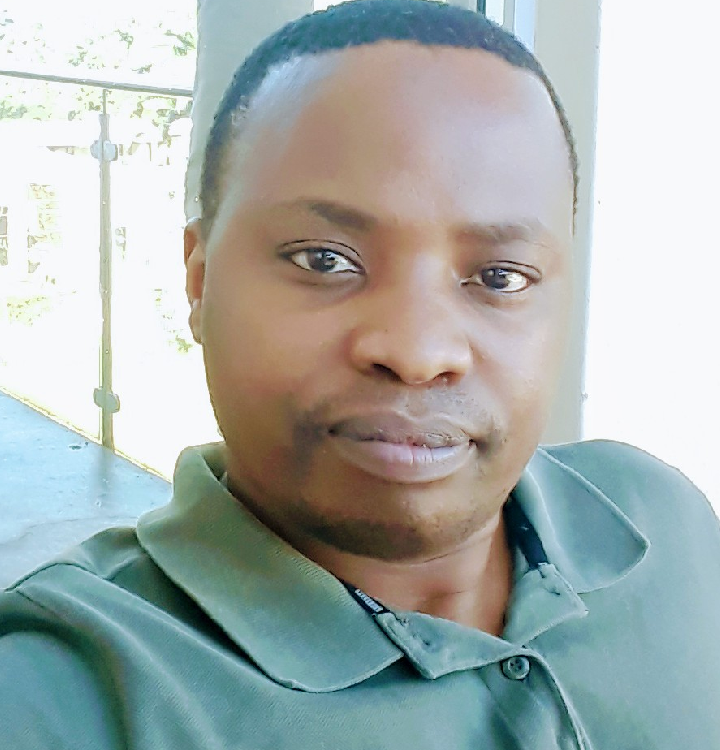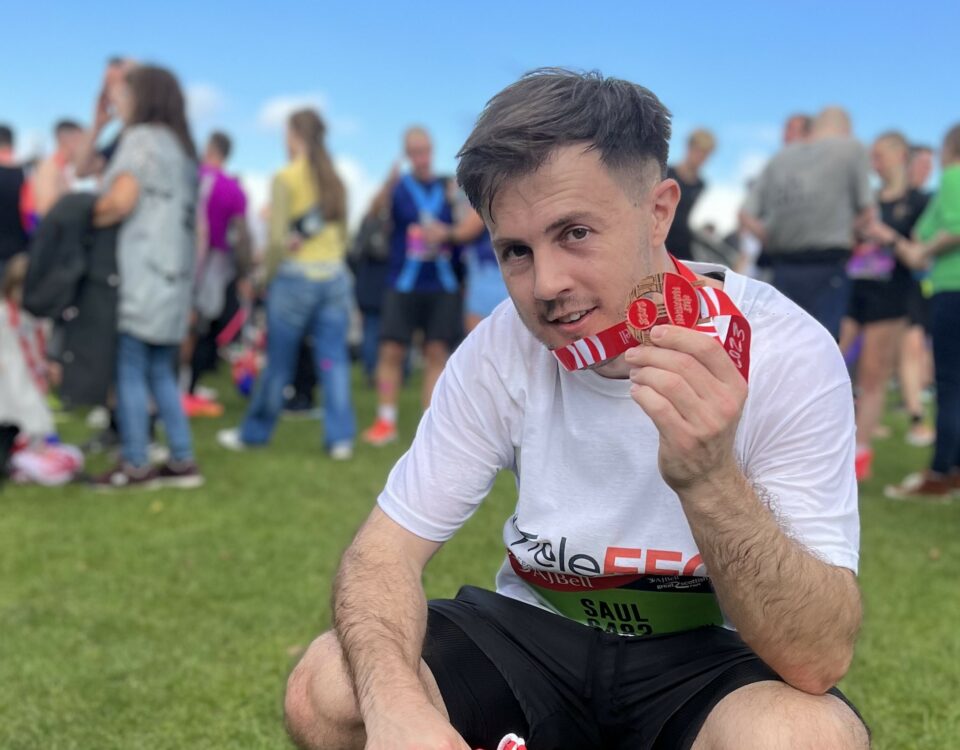This website uses cookies so that we can provide you with the best user experience possible. Cookie information is stored in your browser and performs functions such as recognising you when you return to our website and helping our team to understand which sections of the website you find most interesting and useful.
Dr Go!
Dr Go!
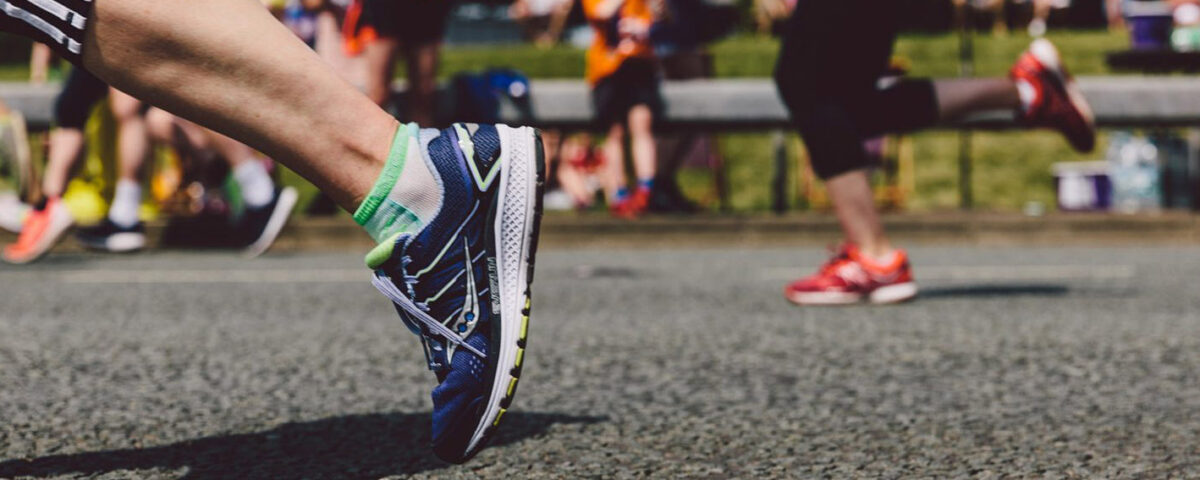
TeleEEG volunteer Doctor Saul Crandon will be running to raise funds for TeleEEG in the upcoming Great Scottish Run half marathon on Sunday October 1st 2023.
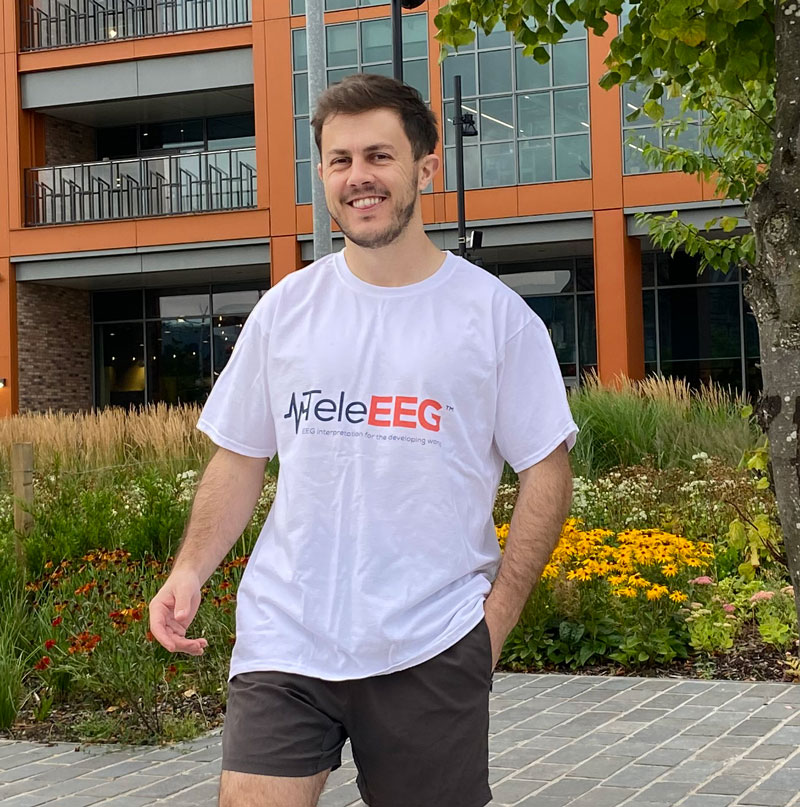
Running 13 miles to raise awareness and critical funds to help enable epilepsy clinics in developing countries worldwide, Saul will join the iconic route and fellow marathon runners around Glasgow.
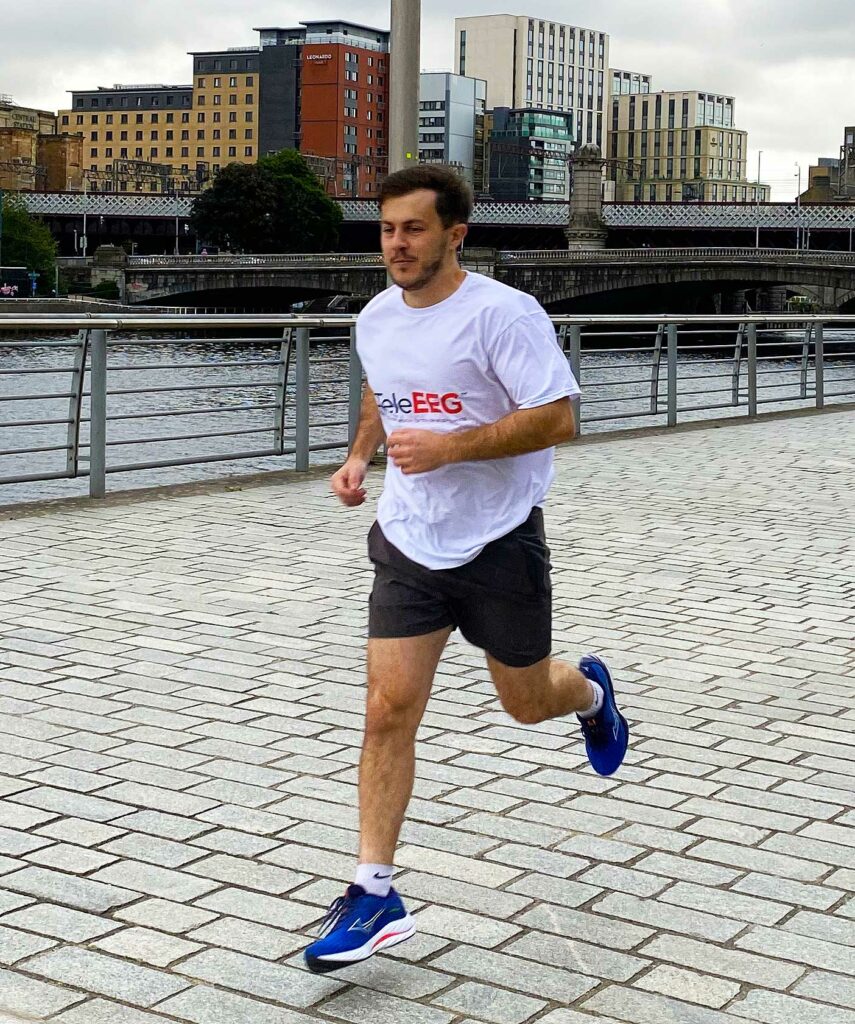
We hope for good weather and great support for you Saul, we are all behind you. Dr GO!
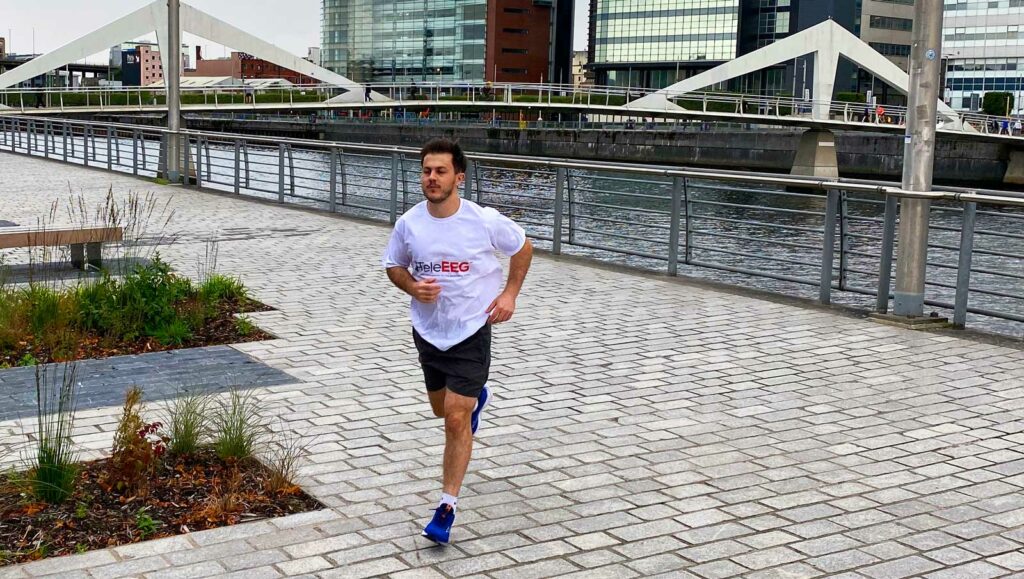
To sponsor Saul for TeleEEG click here: www.gofundme.com/f/teleeeg
MIND THE GAP
TeleEEG® – EEG Interpretation for the Developing World
35 million people worldwide currently live in the epilepsy treatment gap, recognised as a major public health concern by the World Health Organization (WHO).
TeleEEG® is a UK charity founded in 2012 – Our global team of volunteer Doctors each willingly give time regularly to TeleEEG.
We donate equipment, training and ongoing diagnosis on a daily basis as required to the 70 clinics in 30 countries enabled to date, median patient age is 13 years old.
Many are in hospitals in war torn areas, while others reel from natural disasters or political unrest, as in the Democratic Republic of Congo (DRC), Haiti, Myanmar, and Nepal.
Despite the extraordinary challenges faced by fellow physicians worldwide, once connected with TeleEEG we provide: Basic EEG kit, ‘How to take an EEG’ training online or in-person, and Ongoing remote diagnosis and advice.
We deliver diagnosis reports within an average of 2.5 days (2022) against a target of 5 days for routine cases, and urgent cases in 11 hours (2022) against a target of 24 hours. Total average time to respond, year to date in January 2023 was 6 hours 33 minutes.
Hospitals in 20+ countries currently await our intervention including: Chad, Colombia, El Salvador, Ethiopia, Ghana, India, Iran, Iraq, Liberia, Malawi, Mongolia, Mozambique, Namibia, Paraguay, Philippines, Rwanda, Somalia, Tanzania, Uganda, Uzbekistan, Zanzibar and Zimbabwe.
The task of remote EEG interpretation is made possible by the nature of EEG where output is analysed separately from the process of recording the EEG. Efficiencies are gained by the design of the TeleEEG system that allows a clinic with a patient-in-need overseas to upload their EEG to our network 24/7, where it is allocated to the most relevant available interpreter volunteering to read and report the diagnosis by return.
Visit www.teleeeg.org for more information, to volunteer, donate equipment or become a supporter.


